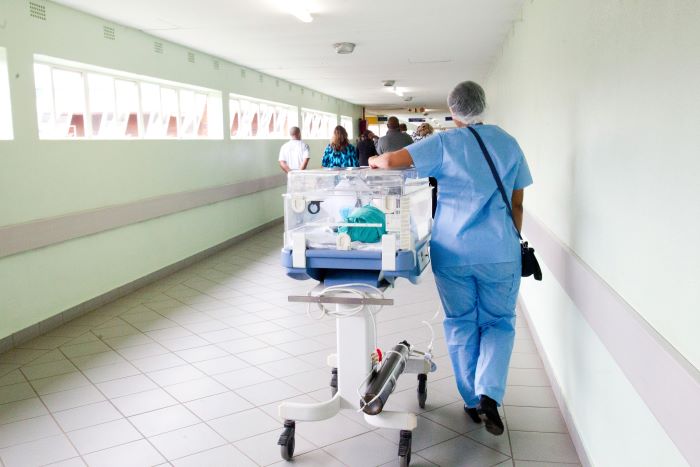When society is tested – new study to contribute to Sweden's preparedness

Photo: Hush Naidoo, Unsplash
How can essential services such as social services and primary care continue to function during extreme crises such as war? This question is at the heart of a new research project that researchers at Jönköping International Business School (JIBS) will be working on over the next two years.
“The project will help us in Sweden to increase our preparedness for various types of scenarios, such as war or other crises in society,” says Timur Uman, Professor of Business Administration at JIBS and the project leader.
The initiative will investigate how management control systems (MCS) are configured to ensure resilience, and will study examples of how such systems have functioned in social services and primary care in Ukraine during the current war.
It is a collaborative project in which the social services and the National Board of Health and Welfare in Jönköping Municipality are also involved. Funding is provided by the Jan Wallander and Tom Hedelius Foundation and the Tore Browaldh Foundation.
"In social services, we are working intensively to strengthen our preparedness for various future scenarios. We are also working more in depth with our risk and continuity management for our various activities. From this perspective, there are experiences from Ukraine that can contribute to our ongoing development work," says Stefan Österström, Director of Social Services at Jönköping Municipality.
Timur Uman believes that the collaboration with both social services and the National Board of Health and Welfare is working well.
“I am in constant contact with them so that I can ask the right questions that will provide answers that will ultimately also benefit them,” he says.
Data collection in war zones
The project combines qualitative interviews with quantitative analysis to identify patterns and strategies that contribute to increased resilience in crisis situations.
By analyzing how different instruments interact – cultural, administrative, cybernetic, strategic and reward-based – the researchers in the project want to understand how continuity can be maintained even during high-intensity crises.
“Ukraine offers a unique opportunity to study these issues, as the war there is taking place under relatively transparent conditions, which provides access to empirical data that is otherwise difficult to obtain in conflict zones,” says Timur Uman.
The research team from JIBS is collaborating with social services and primary care in the city of Konotop in Ukraine and, when possible, is interviewing managers in both sectors. The research team will also collect data by sending surveys to employees in primary care and social services throughout the Sumy region of Ukraine.
Timur explains that they will later repeat the same process of interviews and surveys to see what has happened and how the two sectors have adjusted their systems.
“Due to the ongoing war, we have to be very proactive when it comes to collecting data,” he says.
Results will guide Swedish municipalities
The results of the study will form the basis for practical guidance for Swedish municipalities, with concrete recommendations on how social services and primary care can strengthen their crisis preparedness.
